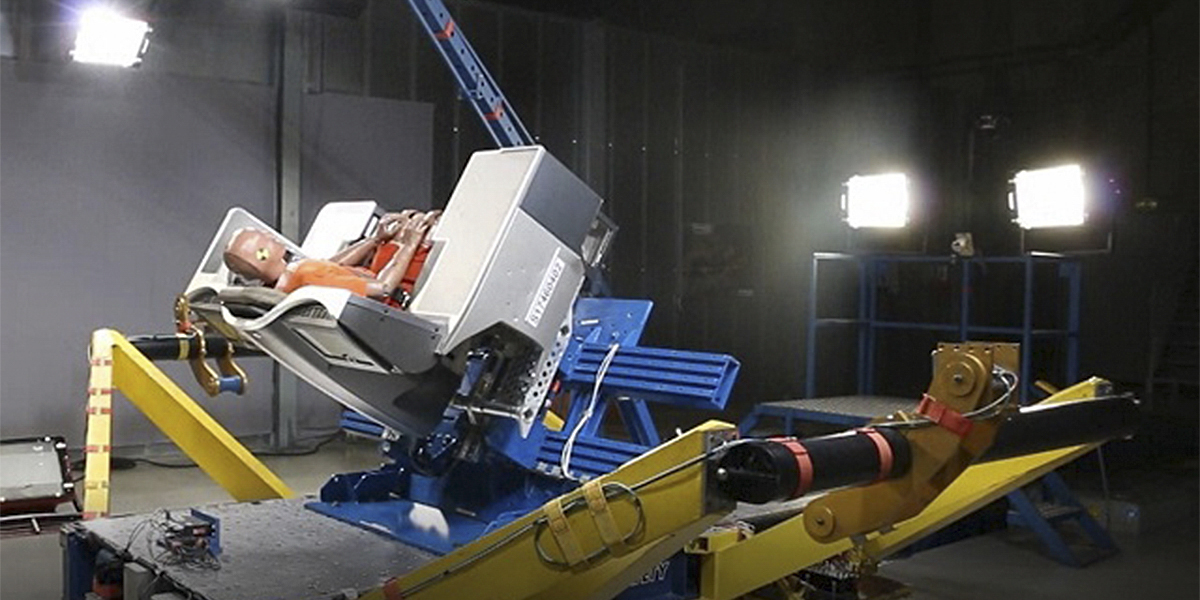FMVSS 301 Fuel System Integrity Passive Safety Test
The FMVSS (Federal Motor Vehicle Safety Standards) 301 test is a critical requirement that ensures fuel system integrity in the event of an accident. This passive safety test evaluates how well automotive fuel systems resist damage, which could lead to fuel leakage and subsequent hazards such as fire or explosion.
FMVSS 301 applies to all passenger cars, light trucks, and other vehicles intended for highway use. The primary objective is to prevent fuel system failures that can compromise vehicle safety in the event of a crash. This test ensures the integrity of components like fuel tanks, lines, and connections.
The FMVSS 301 test consists of several steps designed to simulate real-world accident conditions. During the test, vehicles are subjected to controlled impacts intended to replicate collision scenarios common on roads. The test evaluates how each fuel system responds under these simulated conditions, focusing on the ability of components to retain fuel and prevent leaks.
The testing process involves detailed preparation and setup to ensure accurate and reliable results. Vehicles undergo a series of impact tests at varying speeds and angles, with specific criteria for each condition. After the test, engineers thoroughly examine the fuel system, checking for any signs of damage or leakage. The integrity of the fuel tank, lines, and connections is critical in this evaluation.
The FMVSS 301 standard is meticulously detailed to account for various vehicle types and sizes. The test ensures that all vehicles meet minimum safety requirements established by federal regulations. Compliance with these standards not only enhances road safety but also helps manufacturers avoid costly recalls and potential legal issues.
Compliance with FMVSS 301 is mandatory, and non-compliance can result in significant penalties for manufacturers. Therefore, it's essential for automotive manufacturers to understand the requirements of this standard and ensure their vehicles pass all necessary tests. By conducting these tests early in the development process, manufacturers can identify potential issues and make necessary adjustments.
The FMVSS 301 test is a crucial part of the broader safety testing regimen for automobiles. It ensures that vehicles are designed to protect occupants from the risks associated with fuel system failures during accidents. This standard plays a vital role in maintaining public confidence in automotive safety and compliance with federal regulations.
Why It Matters
The FMVSS 301 test is essential for ensuring that vehicles are designed to withstand the stresses of an accident without compromising fuel system integrity. This standard directly impacts road safety by preventing potential hazards such as fuel leaks, which could lead to fires or explosions.
When a vehicle is involved in an accident, the fuel system must remain intact and secure to prevent any leakage that could exacerbate the situation. FMVSS 301 helps guarantee that the fuel tank, lines, and connections are robust enough to withstand significant impacts without failing.
The importance of this test cannot be overstated, as it directly contributes to reducing the risk of injury or death in the event of an accident. By ensuring that fuel systems do not fail under stress, FMVSS 301 helps protect occupants and other road users from potential dangers. This standard is a critical component of overall vehicle safety, reflecting the commitment to public safety.
Compliance with FMVSS 301 also has broader implications for manufacturers. Meeting these standards can enhance brand reputation and market credibility. It demonstrates a company's dedication to producing safe vehicles that meet regulatory requirements. This compliance is essential in maintaining consumer trust and ensuring that products are fit for their intended purpose.
In summary, FMVSS 301 plays a crucial role in enhancing road safety by ensuring that fuel systems remain intact during accidents. It helps protect both passengers and bystanders from potential hazards, reflecting the automotive industry's commitment to public safety and regulatory compliance.
Why Choose This Test
- Ensures Compliance with FMVSS 301 Standards: This test is mandatory for all vehicles intended for highway use. Non-compliance can result in significant penalties and reputational damage.
- Identifies Potential Issues Early: Conducting this test early in the development process allows manufacturers to identify potential issues before full-scale production, saving time and resources.
- Enhances Road Safety: By ensuring fuel system integrity during accidents, this test helps prevent fires or explosions that could exacerbate the situation.
- Promotes Brand Reputation: Compliance with FMVSS 301 can enhance a manufacturer's reputation and market credibility, contributing to brand trust and customer satisfaction.
- Reduces Risk of Recalls: Early testing helps manufacturers identify and address potential issues before they become major problems, reducing the risk of costly recalls.
- Achieves Regulatory Compliance: This test is a critical requirement for ensuring vehicles meet federal regulations, helping manufacturers avoid legal and financial penalties.
The FMVSS 301 Fuel System Integrity Passive Safety Test is essential for automotive manufacturers seeking to ensure their products meet the highest safety standards. By choosing this test, manufacturers can demonstrate their commitment to public safety while enhancing brand reputation and regulatory compliance.





